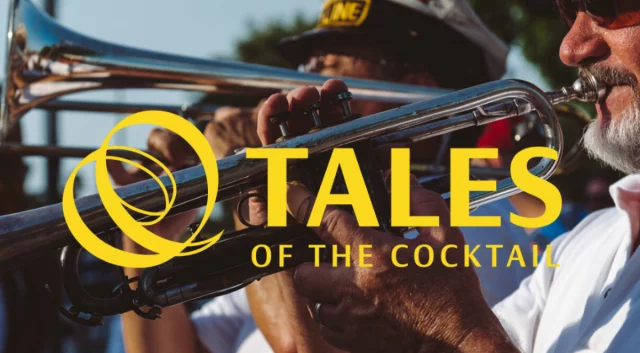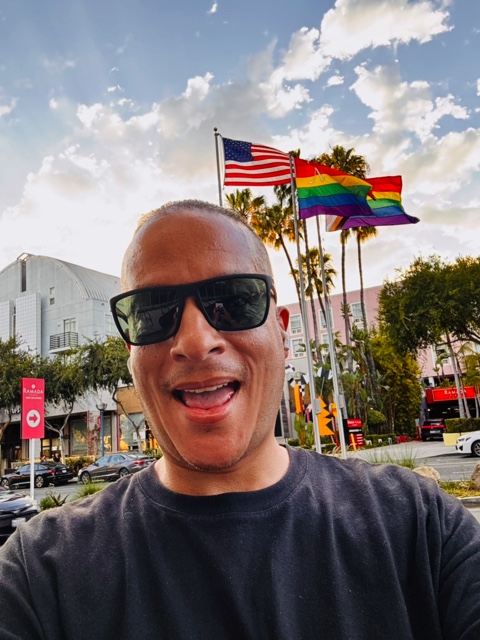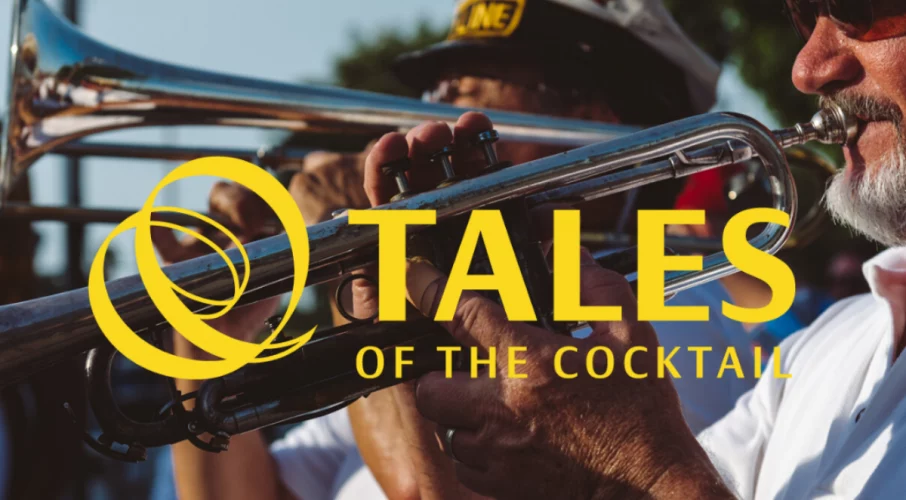John Gakuru: “Bars are safe spaces; no app can replace them”
Γιαννης Κοροβεσης•Articles
It doesn’t take long, speaking with John Gakuru, to understand the caliber and value of your interlocutor. Grounded and humble, passionate and visionary, authentic, with a resume spanning four continents that anyone in our industry would envy, travels around the world, experiences, international acclaim, and an effortless politeness. I had the chance to meet him at this year’s Athens Bar Show and talk about the drinks industry, the Tales of the Cocktail Foundation, the African bar scene, and himself.
The first time we spoke, shortly before he left for Kenya, the country of his heritage, he was eager to visit. The second time, just after he returned, I sensed a man “full” of emotions, satisfied, genuinely content. “I’ve already booked my next trips there,” he told me.
Talented mr. John Gakuru
John Gakuru’s resume is impressive. At 23, he found himself managing the famous LAB bar in London’s Soho, one of the first bars responsible for the cocktail bar culture revival, a breeding ground for some of the most significant figures in the field, and a meeting point for the first international barflies back in the early 2000s. A few years later, he became one of the first global brand ambassadors (for Sagatiba), leaving a lasting mark on the community. Today, he runs his own consulting company, Coruscent Co., working with drinks brands from around the globe while also serving on the board of the Tales of the Cocktail Foundation.
When I asked him if and how his African roots (Kenya) have influenced his work and accomplishments, he explained its fundamental impact: “Every time I return to Kenya, I think about how lucky I am,” he told me. “It’s so easy to get carried away by material possessions and superficial pleasures, but Kenya keeps me grounded and focused only on what truly matters. Also, I believe my work ethic stems from my heritage. I’m certain that this part of my DNA, connected to it, guides me like a moral compass.”
And what, I asked, does the African bar scene need to take the next step, to stand out and shine? Is it about a specific African ingredient gaining global recognition, bars making it to the list of the world’s 50 best, or an African winning a major cocktail competition, or something else?
John Gakuru spoke of Kenya’s remarkable talent and its unique, exceptional raw materials. But he insisted that recognition must fundamentally come from ongoing, intrinsic, and unpretentious excellence. “Recognition comes when work is done with passion and purpose, and, of course, consistently,” he clarified. For John, it’s not right to chase awards and accolades; rather, one should perfect all the fundamental values of the profession, as well as the basic techniques, from guest service to daily operational routines. Recognition will follow naturally.

For some years now, John has been mentoring Kenyan bartenders, encouraging them to focus primarily on their craft rather than international recognition.
Returning to the U.S. and John Gakuru’s role at the Tales of the Cocktail Foundation, he admits it is undeniably one of the most significant positions for him. As a board member, he oversees initiatives related to professionals’ well-being, inclusion issues, and education. Programs like “Beyond the Bar,” the foundation’s digital platform designed years ago to support bartenders in matters “Beyond the Bar”, are for John incredible opportunities for bartenders worldwide.
“Like in most jobs, in ours too, we all try to maintain healthy relationships, our families, and everything we love. But in hospitality, everything is somewhat harder as we work nights, in direct contact with alcohol, so if we decide to stay in this field, we must take care of ourselves, nurture our physical and mental well-being, as well as our environment. The ‘Beyond the Bar’ program provides information, consolidated knowledge, and tools to support bar professionals beyond their bars. Claire Warner has done an outstanding job, leaving an incredible legacy, which everyone can see just by exploring the Tales of the Cocktail website.”

“Because Tales is not just about cocktails,” he explained. “Tales creates resources that ensure our community can grow and thrive, both professionally and personally. We rely on the support of sponsoring companies and our partners to genuinely engage with bar communities not only in the U.S. but globally. It’s critical to understand each country, each community, and their needs. So, we collaborate with professionals living and working in different countries, not to guess what they need, but to truly understand their goals, their needs, and the challenges they face.”
One of the most memorable points in our conversation, however, was when John Gakuru expressed his belief in the essence of hospitality. In an era defined by technology and its applications, he sees bars and restaurants as sacred spaces, as sanctuaries where people can connect in ways no app or algorithm can replicate.
“Artificial intelligence can help with our bar inventory or perhaps with bookkeeping,” he told me, “but it can never replace the sanctuaries we create for people to gather, celebrate, and share their most personal moments.”
Yet, as he admitted, smartphones and social media have indeed been the most impactful change in the bar industry over the last two decades: “They completely changed the face and character of hospitality. And I’m not saying it’s all bad. I won’t just say that now everyone can feel like and be a bar and restaurant critic, journalist, photographer, or filmmaker, or simply share their opinions about every place they visit. But let me give another example: the majority of the younger generation doesn’t want to star in casual videos under the influence of alcohol; for some reason, they don’t want to be drunk and exposed. However, since the smartphone is an integral part of them, they decided to reduce their alcohol consumption to avoid such situations.”

As our conversation drew to a close, I couldn’t resist asking about his future plans. I had read in another interview that he isn’t interested in money, which I pointed out, wondering how he envisions himself in ten years and in what capacity.
“No, don’t misunderstand me,” he immediately replied. “I didn’t exactly say I’m not interested in money, but that I hate it. I hate negotiating and using it. I hate what it turns us into. I hate having to find new ways to earn it. But obviously, I recognize that we need it to move forward in life. However, close to my retirement, I’d like to work without money being on my mind. I’ll certainly work until I can’t anymore, but at some point, I want to do it with money out of the equation. I want to do things I genuinely enjoy without ever having to talk about them.”
And what, after ten years, does he still have left to do? If anyone guessed it, I take my hat off to them. I had my suspicions, and John Gakuru confirmed them. He is already preparing a spirit in Kenya, made from ingredients of his homeland—a spirit like no other. So… he’s preparing to become a producer—this is all the information I managed to extract about it!
John, if you’re reading this through Google Translate, my sincerest thanks.







